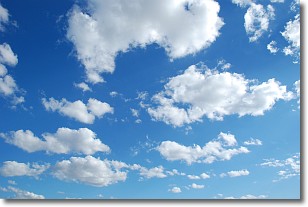Weather Alert in North Carolina
Flood Watch issued August 13 at 3:43AM EDT until August 13 at 8:00PM EDT by NWS Morristown TN
AREAS AFFECTED: Cherokee; Clay; Scott; Campbell; Claiborne; Hancock; Hawkins; Sullivan; Johnson; Morgan; Anderson; Union; Grainger; Hamblen; Northwest Cocke; Cocke Smoky Mountains; Northwest Greene; Southeast Greene; Washington; Unicoi; Northwest Carter; Southeast Carter; Roane; Loudon; Knox; Jefferson; NW Blount; Blount Smoky Mountains; North Sevier; Sevier Smoky Mountains; Sequatchie; Bledsoe; Rhea; Meigs; McMinn; Northwest Monroe; Southeast Monroe; Marion; Hamilton; Bradley; West Polk; East Polk; Lee; Wise; Scott; Russell; Washington
DESCRIPTION: * WHAT...Flash flooding caused by excessive rainfall is possible. * WHERE...Portions of southwest North Carolina, including the following areas, Cherokee and Clay, east Tennessee, including the following areas, Anderson, Bledsoe, Blount Smoky Mountains, Bradley, Campbell, Claiborne, Cocke Smoky Mountains, East Polk, Grainger, Hamblen, Hamilton, Hancock, Hawkins, Jefferson, Johnson, Knox, Loudon, Marion, McMinn, Meigs, Morgan, North Sevier, Northwest Blount, Northwest Carter, Northwest Cocke, Northwest Greene, Northwest Monroe, Rhea, Roane, Scott TN, Sequatchie, Sevier Smoky Mountains, Southeast Carter, Southeast Greene, Southeast Monroe, Sullivan, Unicoi, Union, Washington TN and West Polk, and southwest Virginia, including the following areas, Lee, Russell, Scott VA, Washington VA and Wise. * WHEN...Through this evening. * IMPACTS...Excessive runoff may result in flooding of rivers, creeks, streams, and other low-lying and flood-prone locations. Flooding may occur in poor drainage and urban areas. * ADDITIONAL DETAILS... - The potential for slow moving or repeated rounds of efficient rainfall producing showers and thunderstorms may lead to instances of flash flooding. - http://www.weather.gov/safety/flood
INSTRUCTION: You should monitor later forecasts and be prepared to take action should Flash Flood Warnings be issued.
Want more detail? Get the Complete 7 Day and Night Detailed Forecast!
Current U.S. National Radar--Current
The Current National Weather Radar is shown below with a UTC Time (subtract 5 hours from UTC to get Eastern Time).

National Weather Forecast--Current
The Current National Weather Forecast and National Weather Map are shown below.

National Weather Forecast for Tomorrow
Tomorrow National Weather Forecast and Tomorrow National Weather Map are show below.

North America Water Vapor (Moisture)
This map shows recent moisture content over North America. Bright and colored areas show high moisture (ie, clouds); brown indicates very little moisture present; black indicates no moisture.

Weather Topic: What is Condensation?
Home - Education - Precipitation - Condensation
 Next Topic: Contrails
Next Topic: Contrails
Condensation is the process which creates clouds, and therefore
it is a crucial process in the water cycle.
Condensation is the change of matter from a state of gas into a state of liquid,
and it happens because water molecules release heat into the atmosphere and
become organized into a more closely packed structure, what we might see as
water droplets.
Water is always present in the air around us as a vapor, but it's too small for
us to see. When water undergoes the process of condensation it becomes organized
into visible water droplets. You've probably seen condensation happen before on the
surface of a cold drink!
Next Topic: Contrails
Weather Topic: What are Cumulonimbus Clouds?
Home - Education - Cloud Types - Cumulonimbus Clouds
 Next Topic: Cumulus Clouds
Next Topic: Cumulus Clouds
The final form taken by a growing cumulus cloud is the
cumulonimbus cloud, which is very tall and dense.
The tower of a cumulonimbus cloud can soar 23 km into the atmosphere, although
most commonly they stop growing at an altitude of 6 km.
Even small cumulonimbus clouds appear very large in comparison to other cloud types.
They can signal the approach of stormy weather, such as thunderstorms or blizzards.
Next Topic: Cumulus Clouds
Current conditions powered by WeatherAPI.com




